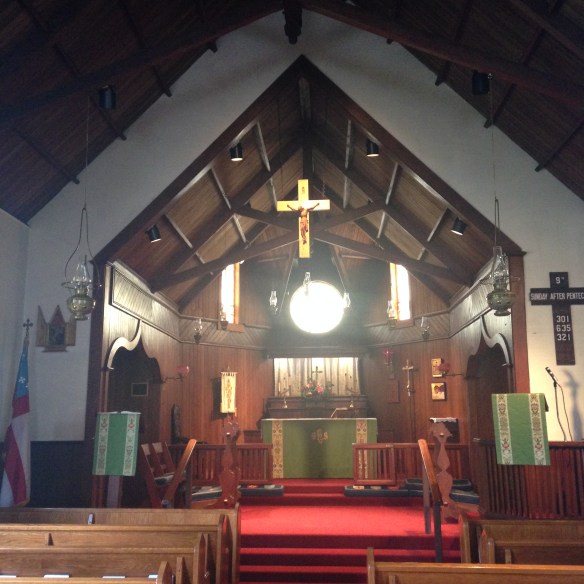I was in early middle school the first time that I was terribly disappointed in a Christian leader’s behavior. I didn’t fully understand what was going on at church, but I knew that my parents were embroiled in some sort of issue with the pastor, and many other people at the church were, too. We ended up leaving that church it got so bad, and since we lived on an island — Orcas Island, Washington — where the only other church available was Episcopal, my parents and others started a new church which met in homes for a while and then in the local high school. Quite a few years later — maybe 20 — the two churches reunited, which was a lovely ending to the old hurts.
Though I saw the hurt that my parents’ suffered in that situation, it didn’t impact me a whole lot personally. I didn’t have strong feelings about the pastor either way other than I disliked him for hurting my mom and dad. A few years later, however, when I was in college, I experienced two separate hurts from Christian leaders who were closer to me. These weren’t moral failings, or even theological failings, as the situation with our pastor had been, these were personal hurts. I was hurt because, with one of them, she left the church — as in the extended, universal Christian church — entirely. I couldn’t believe it. How could she? The other hurt was because I expected too much from a person and was horribly saddened by what I saw as a personal rejection of me as a disciple of this person’s teaching. I wanted more of their attention but I was given less.
I learned several things through these three situations. I learned that my expectations of people were often wrong and possibly even ill-advised. But more importantly, I learned that Christian leaders fail us. They don’t meet our expectations of who they should be. They prove, over and over, that they are human. Whether through moral failure, rejection of the church, or failing to meet our expectations, they make their own choices and those choices don’t always line up with what we think they ought to be.
But the core truth that I learned is far deeper: people will fail us, but Jesus never will.
In all of those years when I felt disappointed in God’s people, never once did God himself fail me. In all of those times when I compared people to God’s son, felt cynical over human behavior and wept metaphorically or truly over my hurt feelings, never, ever, did Jesus fail to live up to what he promised to be.
Never.
It was good to learn at a young age that Christian leaders are fallible, because it has kept my eyes open and my heart more attuned to the infallible Jesus. A church — or a nation — should not be filled with people who are there only for the leader. That becomes a “cult of the personality”, a group there not for a higher purpose (that of serving God) but there because they think the leader is such a great guy (or gal).
Christians are called Christians because we are named after Christ. Not after any human being. Jesus is the only sinless one, the only perfect one, the only one worth following. He will not disappoint. He will not morally fail. He will not change like shifting sands.
The hymn “My Hope is Built on Nothing Less” came to mind this morning as I saw the headlines in the news. “My hope is built on nothing less that Jesus’ blood and righteousness: I dare not trust the sweetest frame, but wholly lean on Jesus’ name. On Christ, the solid Rock, I stand: all other ground is sinking sand; all other ground is sinking sand.”
If your faith is built on people, it will sink.
When my faith was in people, even my very world seemed to crumble, but Jesus was solid. That was a good lesson to learn given that today, when the world truly is in massive upheaval, I know and have seen through 50 years of living, that Jesus is unshakable.
Set your mind on Jesus, friends. Build your hope, your faith, your life on His unchangeable love.
“Now there have been many of those priests, since death prevented them from continuing in office; but because Jesus lives forever, he has a permanent priesthood. Therefore he is able to save completely those who come to God through him, because he always lives to intercede for them.
Such a high priest truly meets our need — one who is holy, blameless, pure, set apart from sinners, exalted above the heavens. Unlike the other high priests, he does not need to offer sacrifices day after day, first for his own sins, and then for the sins of the people. He sacrificed for their sins once for all when he offered himself. For the law appoints as high priests men in all their weakness; but the oath, which came after the law, appointed the Son, who has been made perfect forever” Hebrews 7:23-28


